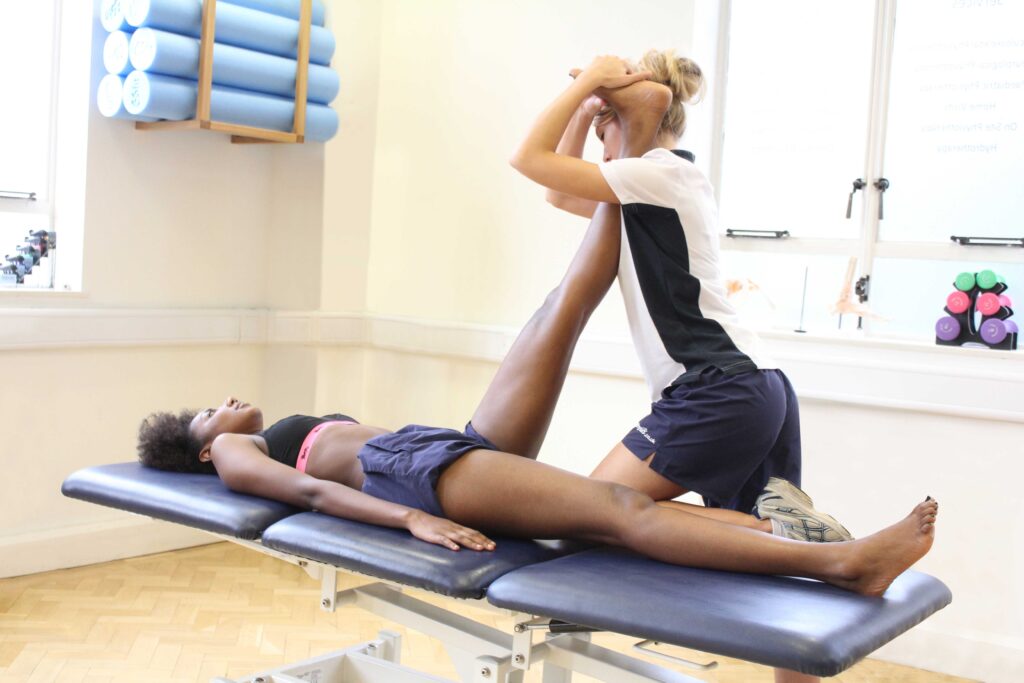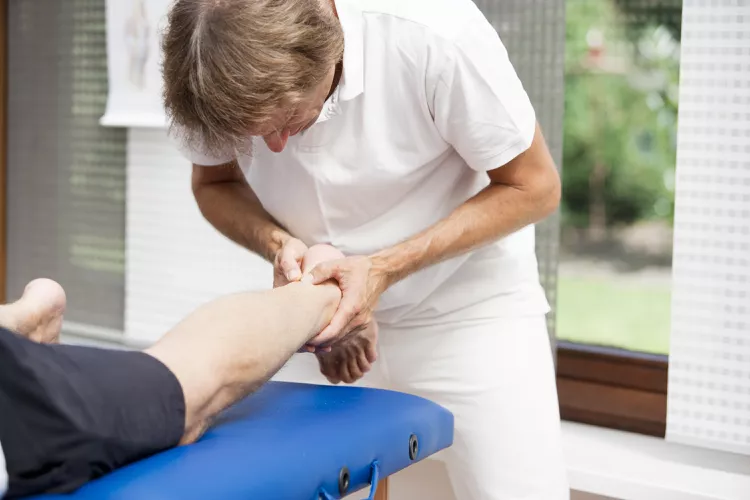How Physiotherapy Aids in Tendonitis Recovery
Heal, Strengthen, and Prevent with Expert Care
Tendonitis, also known as tendinitis, is the inflammation or irritation of a tendon, the thick fibrous cord that attaches muscle to bone. It’s a common issue for athletes, desk workers, and anyone who performs repetitive tasks. Whether you’re lifting weights or typing all day, overuse and poor movement patterns can lead to tendon pain, swelling, and reduced mobility.
Luckily, physiotherapy is a proven, non-invasive treatment option that not only eases pain but also helps prevent future flare-ups. This guide will walk you through what tendonitis is, its causes and symptoms, and how physiotherapy accelerates your recovery.

What is Tendonitis?
Tendonitis is the body’s response to tendon strain, usually from overuse or repetitive motion. It’s especially common in joints like the shoulder, elbow, wrist, knee, and ankle. The condition can develop suddenly or gradually, depending on your activity level and body mechanics.
Common symptoms of tendonitis include:
- Sharp or aching pain in the tendon area
- Swelling or redness
- Tenderness or stiffness
- Pain during movement or activity

Causes of Tendonitis
Tendonitis usually stems from repetitive strain or sudden stress on the tendon. Contributing factors include:
- Repetitive motions at work or during exercise
- A sudden increase in physical activity
- Poor posture or incorrect form during activities
- Aging, which decreases tendon flexibility

How Physiotherapy Helps Tendonitis Recovery
Physiotherapy targets both the root cause and the symptoms of tendonitis. By improving flexibility, strength, and movement patterns, physiotherapy helps you recover faster and avoid re-injury.
Here’s how it works:
1. Pain Relief and Inflammation Control
- Ice Therapy: Reduces swelling and numbs pain.
- Heat Therapy: Relaxes tight muscles and increases circulation.
- TENS Therapy: Uses electrical currents to block pain signals.
2. Manual Therapy
- Joint Mobilization & Massage: Improve circulation, reduce muscle tension, and restore mobility in the affected area.
3. Stretching & Strengthening
A customized plan helps:
- Loosen stiff muscles and tendons
- Strengthen the muscles around the affected joint
- Prevent further strain on the tendon
Key exercise types:
- Isometric exercises: Activate muscles without movement
- Eccentric exercises: Help in tendon remodeling
- Gentle stretching: Improves range of motion
4. Progressive Loading
Instead of avoiding all movement, physiotherapy helps you slowly increase activity levels so the tendon can adapt and heal properly.
5. Biomechanical Assessments
Physiotherapists assess your posture, gait, and movement to correct any issues that could cause or worsen tendonitis.

Popular Physiotherapy Treatments for Tendonitis
1. Dry Needling
Releases tight muscles and improves blood flow in the painful area.
2. Ultrasound Therapy
Stimulates tissue repair and reduces inflammation using high-frequency sound waves.
3. Ergonomic Guidance
Improves your workstation or technique to reduce daily stress on tendons.
4. Bracing & Orthotics
Supports affected joints and helps you move without aggravating the condition.

FAQs About Tendonitis & Physiotherapy
Q1: How long does recovery take with physiotherapy?
It varies. Minor cases may resolve in weeks, but chronic cases can take months with consistent therapy.
Q2: Is physiotherapy effective for chronic tendonitis?
Yes. It’s particularly helpful in long-term cases by addressing biomechanical flaws and building strength.
Q3: Can I exercise with tendonitis?
Yes, with the right guidance. Your physiotherapist will tailor safe movements to avoid further irritation.
Q4: Should I completely rest during recovery?
Not necessarily. “Active rest” is encouraged: gentle, guided movements that promote healing.
Q5: Can tendonitis come back?
It can if poor habits return. Physiotherapy reduces this risk by teaching better movement and posture.
Start Your Recovery Today with FitoFine Physiotherapy
At FitoFine Physiotherapy Clinic, we offer personalized tendonitis treatment plans to help you move pain-free and stay active. Our expert team uses advanced techniques tailored to your condition, lifestyle, and goals.
Contact FitoFine Today!
FitoFine Physiotherapy Clinic
Hours: Monday to Saturday: 5:00 PM – 10:00 PM | Sunday: Closed
Email: fitofine.in@gmail.com
Website: www.fitofine.com
Phone/WhatsApp: +91 6295115701
FitoFine: Your Partner in Pain-Free Movement!


